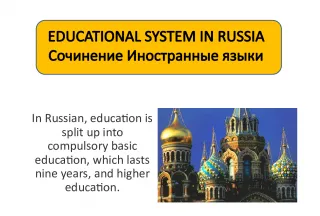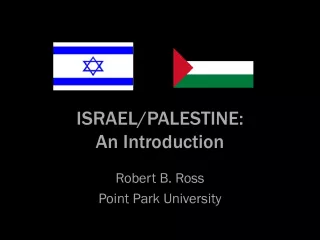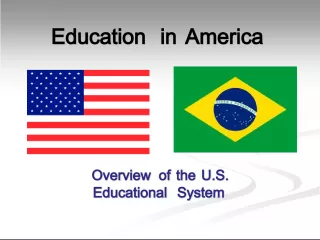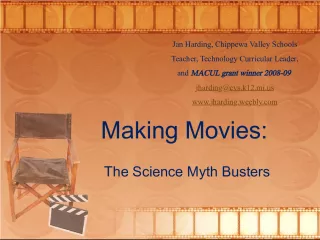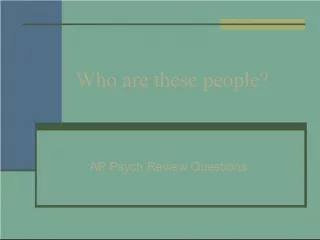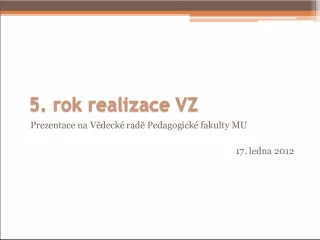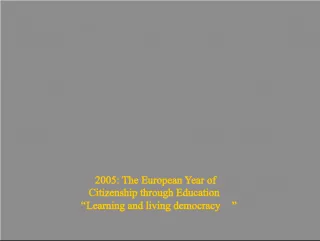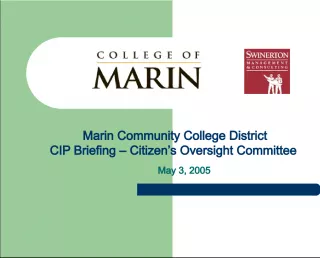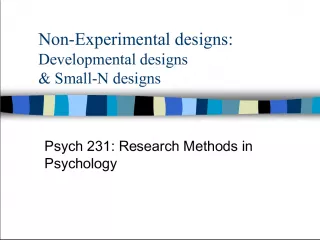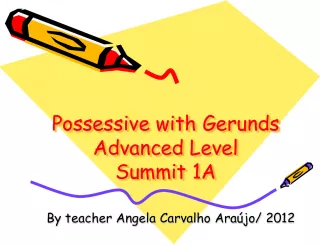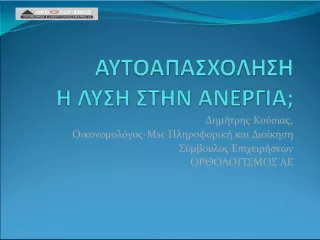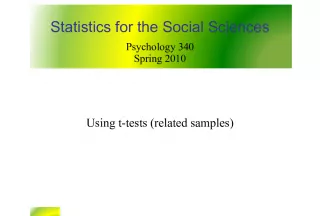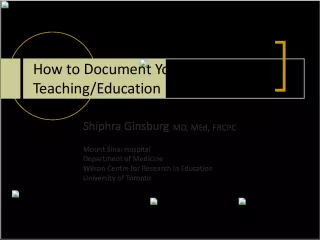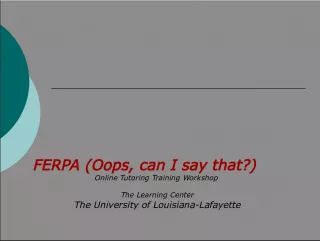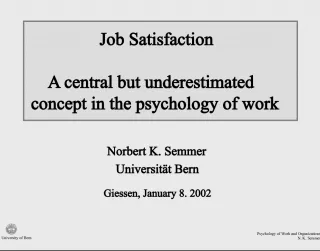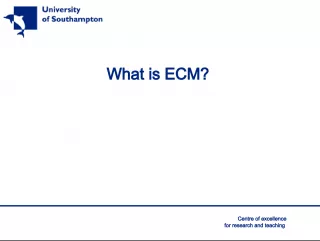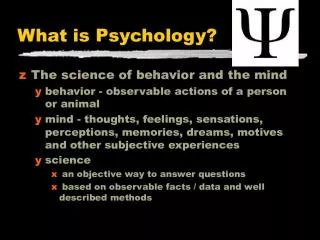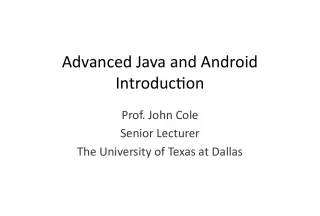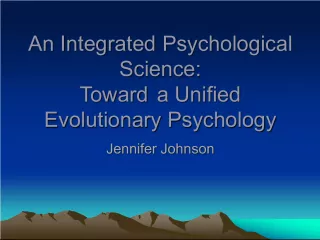Debunking Misconceptions in Education: The Role of Advanced Educational Psychology
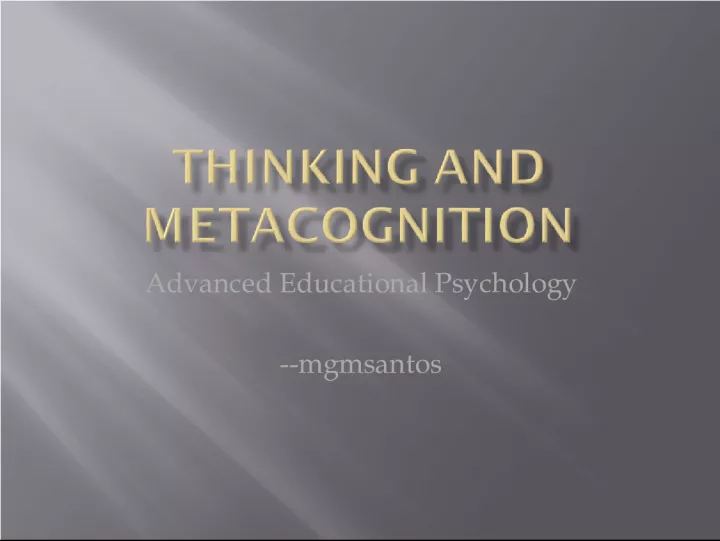

Learn how advanced educational psychology can help debunk common misconceptions about student intelligence and the role of information in learning. Discover why thinking skills are essential for making the best use of information.
- Uploaded on | 0 Views
-
 leliacassin
leliacassin
About Debunking Misconceptions in Education: The Role of Advanced Educational Psychology
PowerPoint presentation about 'Debunking Misconceptions in Education: The Role of Advanced Educational Psychology'. This presentation describes the topic on Learn how advanced educational psychology can help debunk common misconceptions about student intelligence and the role of information in learning. Discover why thinking skills are essential for making the best use of information.. The key topics included in this slideshow are advanced educational psychology, student intelligence, thinking skills, misconceptions, information literacy,. Download this presentation absolutely free.
Presentation Transcript
1. Advanced Educational Psychology --mgmsantos
3. Misconceptions: 1. That nothing needs to be done for students with a high intelligence because they will automatically be good thinkers.
4. Misconceptions ( contd ) 2. That nothing can be done for students without a high intelligence because they cannot ever be good thinkers.
6. Information is very important. Information is not enough unless we have complete information, we need thinking to make the best use of the information we have.
8. Positive vs. Constructive Thinking positive thinking the toles are adjusting to the block, thinking positive thoughts about the situation
9. Constructive thinking the toles are finding a way around the block
10. Deliberate thinking Mapmaking Exploring the subject Looking broadly to be objective e.g. The CoRT Tools
11. 1) PMI -- Plus, Minus, Interesting Points 2) CAF Consider All Factors 3) C & S -- Consequence and Sequel 4) APC -- Alternatives, Possibilities and Choices 5) OPV -- Other Peoples Views
12. (contd) 6) EBS -- Examine Both Sides 7) ADI -- Agreement, Disagreement, Irrelevance 8) AGO -- Aims, Goals, Objectives 9) FOW -- Find Other Ways 10) FIP -- First Important Priorities
13. Coping (Reactive Thinking) Moment to moment activity Looking for signals and reacting to them Walking-talking-breathing type of thinking Like driving a road: read signposts and make decisions
14. Distinction between Critical Thinking and Mindlessness Critical thinking thoughts are consciously and purposefully directed towards finding a solution to the problem
15. Mindless thinking routinely and automatically following a customary thought pattern without consciously directing the thoughts
16. for success in school job requirement for careers leads to ability to solve real world problems
17. Critics of education sometimes say that students are forced to engage in a lot of mindless activities. What are examples of such activities that students are made to pursue in some classrooms?
18. A. Concept Formation Concept is a mental abstraction or category of similar objects, people, events, or ideas (Hampton, 2000).
19. 1 . Defining features features that are necessary and sufficient for defining a concept. Ex: The concept of even numbe r We cannot find an even number that is not divisible by 2 . Thus, this feature is both necessary and sufficient to guarantee that a number is an even number.
20. 2. Characteristic features properties typical of something in a concept, but not always associated with it. Ex: Classrooms and books are only characteristic features of a school. Can you tell why?
21. Characteristic Features (contd) a . Prototype the most representative instance of a given concept Ex. A cow is a good prototype of a mammal because it is quite typical of a mammal, but bats and whales are not.
22. Characteristic Features (contd) b. Exemplars -- representations of individual instances of the concept Ex: In the concept of Dog , exemplars are collie, poodle, German shepherd, etc. which have individual characteristics.
23. generalizable tools that can facilitate cognitive processing are both mental and computation devices that support, guide and extend the thinking processes of the users. external to the learner and engage the learner in meaningful processing of information.
24. SPIDER CONCEPT MAP -- organized by placing the central theme or unifying factor in the center of the map. Outwardly radiating sub-themes surround the center of the map.
25. HIERARCHY CONCEPT MAP -- presents information in a descending order of importance. The most important information is placed on the top. Distinguishing factors determine the placement of the information.
26. FLOWCHART CONCEPT MAP -- organizes information in a linear format.
27. SYSTEMS CONCEPT MAP -- organizes information in a format which is similar to a flowchart with the addition of 'INPUTS' and 'OUTPUTS'.
28. B. Reasoning 1) deductive reasoning general to specific 2) Inductive reasoning specific to general
29. C. Problem Solving -- cognitive processing directed at achieving a goal when no solution method is obvious to the problem solver (Mayer and Wittrock, 2006).
30. 4 Major cognitive processes in problem solving (Mayer and Wittrock) 1. Representing -- constructing a cognitive representation of the problem; 2. Planning -- devising a plan for solving the problem;
31. Problem-solving (contd) 3. Executing -- carrying out the plan; and 4. Self-regulating -- evaluating the effectiveness of cognitive processing and adjusting accordingly.
32. Often associated with John Flavell thinking about thinking higher order thinking which involves active control over the cognitive processes engaged in learning
33. 3 Basic elements 1) Planning reflecting before 2) Monitoring reflecting during 3) Evaluating -- reflecting after
34. Planning : you ask yourself: What in my prior knowledge will help me with this task? In what direction do I want my thinking to take me? Why do I need to do this? What should I do first? How much time do I have to complete this task?
35. Monitoring : you ask yourself: How am I doing? Am I on the right track? What information is important to remember? Should I move in a different direction ? Should I adjust my pace? What do I need to do if I dont understand?
36. Evaluating : you ask yourself: How well did I do? Did I produce more or less than I had expected? What could I have done differently? How might I apply this to other problems? Do I need to go back through the task to fill in any gaps in my understanding?
37. Why are metacognitive strategies important?
